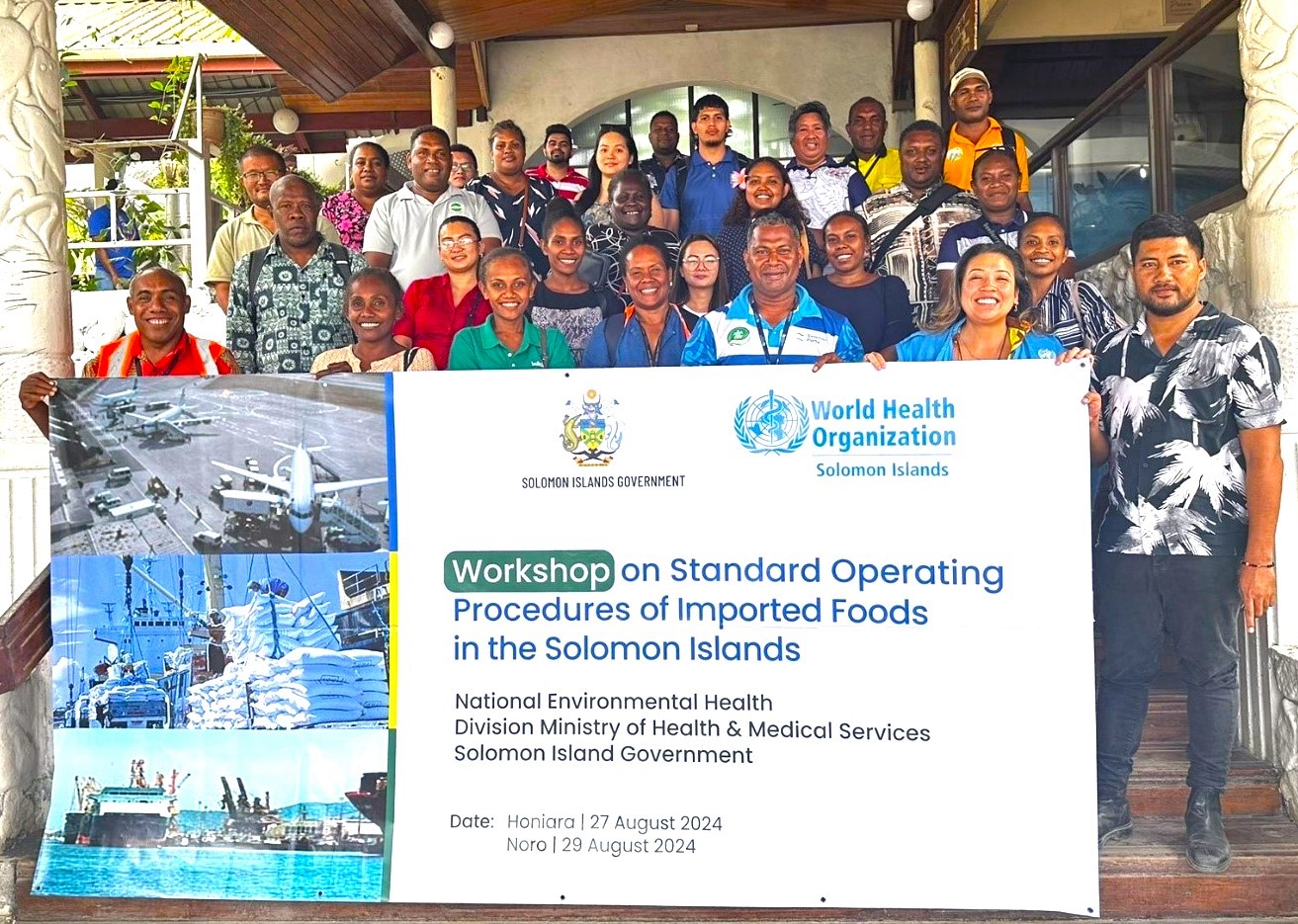
Strengthening Food Safety: Solomon Islands Tackles Imported Food Risks
Strengthening Food Safety: Solomon Islands Tackles Imported Food Risks
To enhance food safety in the Solomon Islands, the Ministry of Health and Medical Services (MHMS), with the support of the World Health Organization (WHO), recently conducted two important workshops on Standard Operating Procedures (SOPs) for imported food products. These workshops were held in Honiara on 27th September and in Noro on 29th September. They aim to streamline food import processes and ensure the safety of imported food, addressing the challenges the country faces with the growing reliance on food imports.
The Solomon Islands heavily depend on imported food to sustain their population. As Patricia Soqoilo, Chief Food Safety Officer at MHMS, emphasized, “With the rise in globalization and advances in food and transportation technology, consumer demand for quick, easy-to-prepare food has increased significantly. This has led to a greater reliance on imported foods, which now form a large part of our food supply.”
While imported food provides much-needed variety, it also introduces risks. These include expired products, contamination, undeclared allergens, improper labeling, and foods high in unhealthy ingredients like fat, salt, and sugar. “We must maintain strict control over food imports to protect the health of our people,” Soqoilo added. She pointed out that the workshops focus on strengthening coordination between government agencies to ensure smoother food import processes and higher compliance with safety regulations.

Participants and facilitators in the workshop in Honiara, including the PoE of Honiara Sea Port
The workshops gathered various stakeholders, including customs officers, health inspectors, biosecurity officers, and food importers, all of whom play a key role in the food safety system. The goal was to foster collaboration between these agencies and improve the import process using the “One Health” approach. This approach, which considers human, animal, and environmental health together, is crucial for ensuring that imported foods are safe for consumption.
The Role of the Joint External Evaluation (JEE)
These food safety workshops are part of a larger assessment under the framework of the International Health Regulations (IHR), with the Joint External Evaluation (JEE) focusing on 19 technical areas, including food safety. According to Georgios Theocharopoulos, WHO Technical Officer for Health Emergencies, “The two Food Safety events are integral to the broader JEE assessment happening in Solomon Islands this year. This evaluation will help us clarify roles and responsibilities across sectors, improve communication, and identify areas for strengthening the system.” The JEE process, which runs from 23rd to 27th September, will enhance the country’s capacity to detect and respond to potential food safety incidents effectively.
Dr. Jessica Kayamori Lopes, WHO Technical Officer for Food Safety and Zoonotic Diseases, underscored the importance of multisectoral collaboration. “Ensuring food safety isn’t just about controlling imports. It’s about maintaining safety throughout the entire food supply chain,” she said. The workshops also aimed to raise awareness among importers and create a shared responsibility among food producers, processors, wholesalers, retailers, and consumers in safeguarding public health.
As Solomon Islands moves forward with these improvements, the commitment to stronger collaboration and efficient food safety systems is essential for protecting the health of its people. With dedicated efforts like these workshops, the country is better equipped to address the increasing complexities of food safety in today’s interconnected world.
Ends///…
Distribution channels:
Legal Disclaimer:
EIN Presswire provides this news content "as is" without warranty of any kind. We do not accept any responsibility or liability for the accuracy, content, images, videos, licenses, completeness, legality, or reliability of the information contained in this article. If you have any complaints or copyright issues related to this article, kindly contact the author above.
Submit your press release